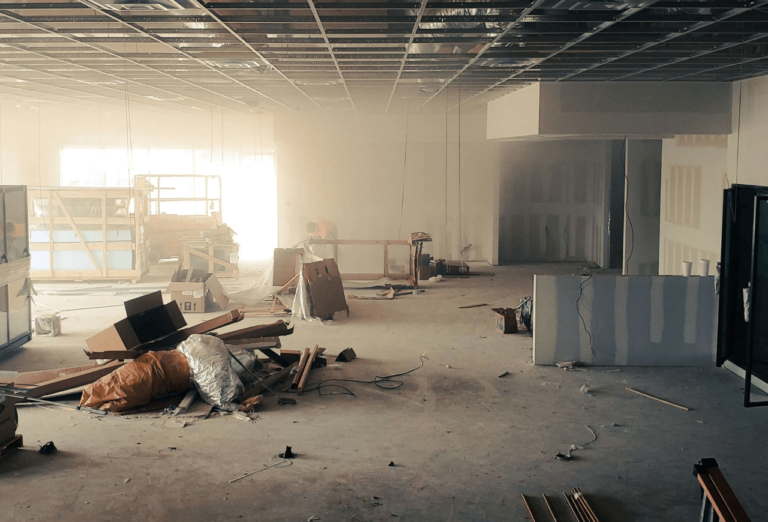 As a homeowner, you have a lot of things to worry about with your property. It needs to be insulated well to control the temperature inside. Various fixtures, appliances, and electrical systems have to work properly for you and your family to be comfortable. Structural issues may not be noticed at first but could end up costing you a lot of money if they grow worse. Then, of course, there is the potential for water damage, which is the scourge of structural materials and personal possessions everywhere.
As a homeowner, you have a lot of things to worry about with your property. It needs to be insulated well to control the temperature inside. Various fixtures, appliances, and electrical systems have to work properly for you and your family to be comfortable. Structural issues may not be noticed at first but could end up costing you a lot of money if they grow worse. Then, of course, there is the potential for water damage, which is the scourge of structural materials and personal possessions everywhere.
Water damage is one of the most common issues that homeowners, and even commercial properties, have to deal with. Many circumstances could cause water damage to occur, from corroding pipes to heavy rainfall to broken appliances. While restoring your property after water damage is a hassle in and of itself, but one side effect of that moisture problem is mold growth.
The Cause of Mold Growth
Mold requires four things to grow; an organic food source, oxygen, the right temperature, and moisture. In almost every building, those first three conditions exist. Room temperature is perfect for mold growth, and oxygen and food sources are not hard to find indoors. But when that fourth ingredient enters the picture, that is when mold spores can develop at a high rate.
Microscopic mold spores exist at low levels in your home all the time, but they are not harmful. The question you need to ask yourself after water damage occurs is “will the property remain damp?” Any amount of moisture remaining in the building could cause a mold infestation.
The Dangers of Mold Spores
The presence of airborne mold spores in your home can cause several health concerns that you will want to prevent. Severe asthma attacks can occur if there is prolonged exposure to certain molds. Black mold, which is one of the more toxic molds, can cause eye or skin irritation, a runny nose, headaches, or respiratory issues. Not all molds are the same, and some may simply result in allergic reactions.
No matter what type of mold has formed or where it is located, airborne spores reduce the air quality of your property. The longer your mold problem exists, the more damaging it can be to your health and the health of your family. Additionally, molds produce odors that can be unpleasant, though not dangerous. If you ever notice a musty odor, then you probably have a mold infestation.
Mold Removal VS. Remediation
You may often hear the terms “mold remediation” and “mold removal” used interchangeably when conducting research about eliminating mold. But there is a significant difference between mold removal and mold remediation.
Mold Removal
A mold removal service does exactly what it sound like; it removes mold from your property. Whether you hire a contractor to handle the problem or tackle it yourself, the mold removal process usually starts with a mold inspection to pinpoint mold growth throughout the property.
Mold colonies, which are collections of visible mold, will then be scraped off of the building materials or surfaces that they have infected. This could entail carpet cleaning, thorough scrubbing of drywall, or throwing out infected items that have been ruined. Complete mold removal will rid your home of all traces, making your indoor environments safer for all.
However, even if you completely remove mold from your property, it could easily return if the source of the mold issue is not dealt with.
Mold Remediation
That is the main difference between removal and mold remediation. A remediation service not only removes the mold growing in your home but also stops whatever is causing the problem.
After a water damage incident, there may be consistent moisture on your property, especially if the restoration process you performed was incomplete. Mold feeds on organic material, oxygen, and moisture. Once the mold is removed, if the source is not taken care of, it can quickly return. Mold remediation focuses on eliminating the problem entirely to prevent mold levels from rising again.
This is why mold remediation services are more effective than simple mold removal. It tackles the mold growth at its source to return your property’s air quality to its pre-mold condition.
Professional Mold Restoration
When you discover mold growth on your property, it is time to take action immediately. The longer you wait to respond, the more damage can occur to the people and materials inside your home. To make sure that the job is done well, you should reach out to Portland mold remediation services.
Emergency Services Can Initiate an Immediate Remediation Process
Preventing mold allergies and even neurological problems that can result from mold is all about attacking the infestation right away. Exposure for prolonged periods is dangerous, and a professional remediation company can quickly and effectively remove the mold in your home and stop the source of the growth.
More Effective Cleaning Methods
Handling a mold outbreak may require better equipment than you have access to. Since mold poses such a risk, you need to be sure that it has been removed efficiently. A professional service can rely on high-tech equipment, proven cleaning methods, and years of expertise to completely neutralize mold growths in your home.
Better Inspection Techniques
Mold testing methods can determine how much mold is in your home. Mold remediation technicians can inspect your property to ensure that all traces of mold are found and removed before the project is completed.
When Water Damage Results in Mold Growth, Trust in the Experts
Sure, you can attempt to remove the mold yourself and hope that the problem does not persist. Chances are you are either going to miss some pockets of mold spores or you will fail to eliminate the cause.
Instead, let a mold remediation service take care of your property. Their knowledge, equipment, inspection methods, and remediation experience will be the tools needed to complete a thorough mold mitigation process. Trust the experts to protect your property from its next mold outbreak.


